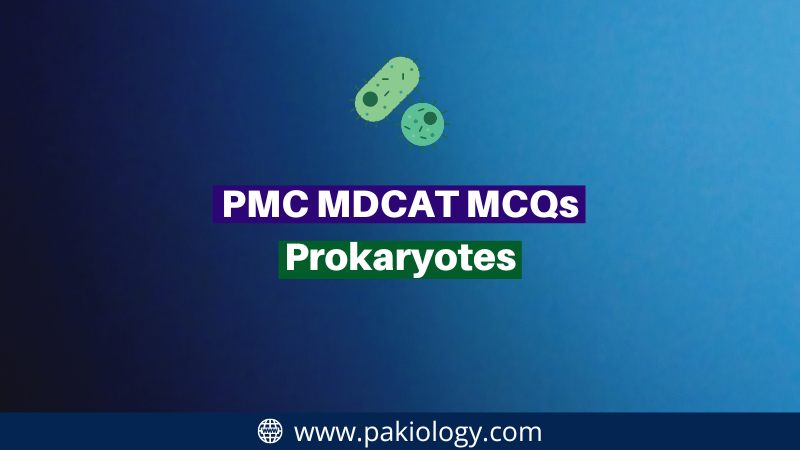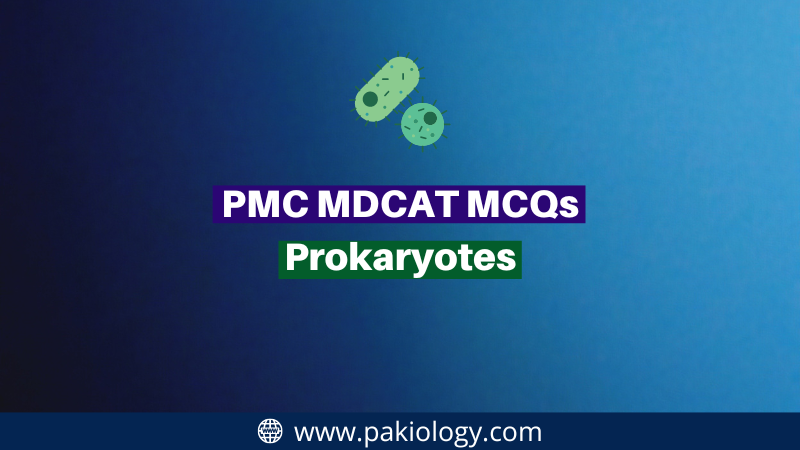Find here the most important MCQs on Prokaryotes. If you want to prepare for your entrance exam, then these MCQs are essential and it will help you with your preparation.
PMC MDCAT MCQs On Prokaryotes
Prokaryotes
Bacteria are single-celled organisms that have no nucleus. They are prokaryotic cells, meaning they do not have a membrane-bound nucleus. These bacteria are often referred to as microbes. There are many different types of bacteria, each with their own unique characteristics. Most bacteria are harmless to humans, however some species may cause disease.
Shape and size of bacteria
Bacteria are microscopic organisms that live everywhere on earth. There are many different types of bacteria, including pathogenic (disease causing) and non-pathogenic (harmless). Bacteria play a role in decomposition of dead matter, recycling of nutrients, and production of antibiotics.
The shape and size of bacteria varies depending on their environment. Most bacteria are rod shaped, but some are spherical, spiral, filamentous, or irregularly shaped. The length of the bacteria ranges from 0.02 to over 100 micrometers. The width of the bacteria ranges from less than 0.01 to over 10 micrometers.
There are two basic shapes of bacteria: cocci and bacilli. Cocci are round and have a diameter of about 0.1 to 1.0 micrometer. Bacilli are long and thin and range from 2 to 20 micrometers in length.
Importance and control of bacteria
Bacteria are single-celled organisms that live everywhere on Earth. Bacteria are responsible for decomposing dead matter and recycling nutrients back into the environment. In nature, bacteria play a role in food digestion, water purification, and even the production of vitamin C. However, some types of bacteria can cause disease and harm humans and animals.
The Importance of Bacteria
Bacteria are necessary for the survival of all living things. Without them, we would not be able to recycle nutrients and break down dead matter. Because of their importance, scientists have been studying bacteria for years. They know how they work and what they need to survive.
Controlling Bacteria
Scientists have learned how to manipulate bacteria to make them useful. Scientists use pesticides to kill harmful bacteria. They also use antibiotics to stop bacterial infections. Antibiotics are drugs that prevent bacteria from causing disease. There are many different kinds of antibiotics, including penicillin, tetracycline, and streptomycin. These dru*s help us fight off bacterial infections.
MCQs On Prokaryotes
Here are the MCQs from the PMC MDCAT on Prokaryotes .
- Chapter: Prokaryotes
- Total MCQs: 108
Time’s Up
score:
Total Questions:
Attempt:
Correct:
Wrong:
Percentage:
Note: For Any Error/Mistake Please Contact us
ALSO ATTEMPT
YOU MIGHT LIKE
Check MDCAT Test Result By Name And Roll Number
It doesn't matter how you score, just as long as you are there. And it's not that important if your friends scored...
PMC MDCAT MCQs On Gases
In this post, we have covered the PMC MCQs from the chemistry chapter Gases. Here you will get all types of MCQs with...
PMC MDCAT MCQs On Atomic Structure
An atom is the smallest particle of an element that still has all of its characteristic properties, such as charge,...
PMC MDCAT MCQs On Fundamental Concepts Of Chemistry
The MDCAT is the Medical College Admission Test, and it’s used to determine whether or not an applicant will be...



I want to attempt a test